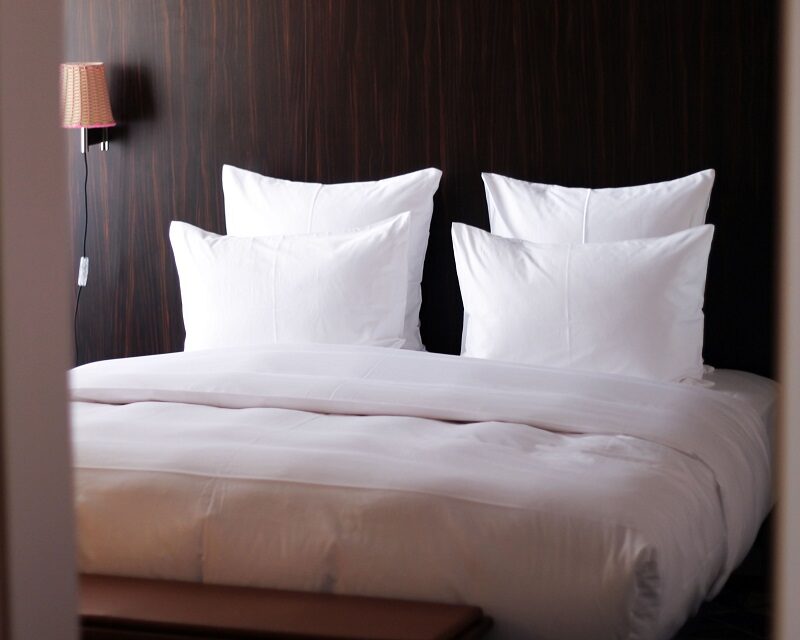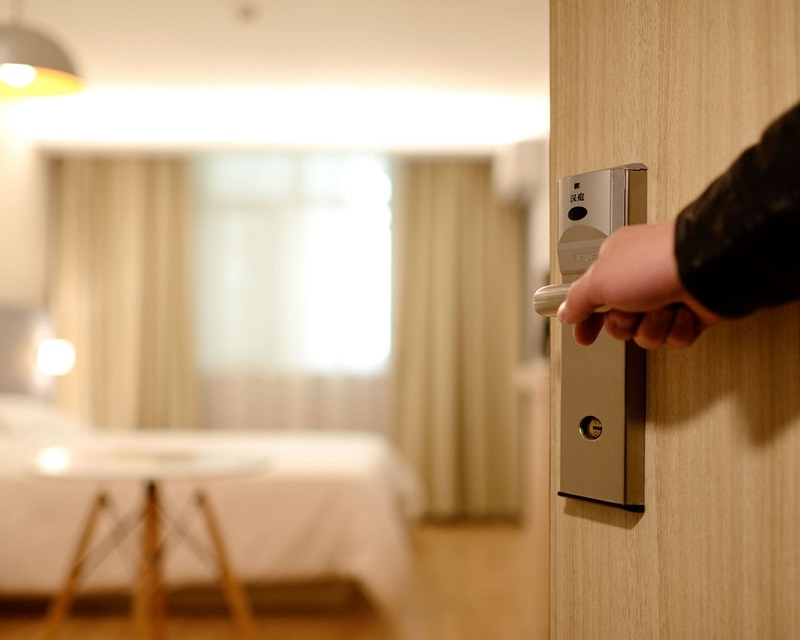
Whether just a quick overnight to break up a road trip, or a week spent on vacation at a tropical resort, hotels and motels give us that home away from home when we need it.
But there’s a reality that many of us fail to see. It’s not always obvious.
A teenage girl, hungry, uses cash to rent a room with an older man. A housekeeper, who can’t speak English, anxiously averts eye contact when approached by a guest. A string of men enter and leave a particular room throughout the night, each staying for only 30 minutes at a time.
These are just a few signs that human trafficking could be happening in your hotel.
We know that human trafficking is happening in hotels and motels because it’s reported to the National Human Trafficking Resource Center (NHTRC)* hotline and BeFree Textline.
From December 2007 to February 2015:
-
1,434 cases of trafficking in hotels and motels were reported
-
1,867 victims and survivors were identified
What kind of trafficking is occurring?
The hotel industry is just one of many venues sex traffickers use to exploit their victims. Pimps commonly use hotel and motel rooms to set up “dates” between victims of sex trafficking and those individuals purchasing sex.
While the majority of cases reported in the hotel industry are sex trafficking cases, it’s important to know that labor trafficking is also occurring, both in the hotels and motels and along their supply chains.
Oftentimes labor trafficking victims can stay under the radar. Frontline staff, such as housekeepers, janitors, and dishwashers, usually maintain a low profile among guests. Because guests seldom interact with these workers, it’s hard for them to take notice of potentially exploitative situations.
Why is it so easy for traffickers to operate within hotels and motels?
The top priority for traffickers is to make money. They know they can make money at hotels and motels because there isn’t a lot of risk involved.
Unlike other venues, hotels and motels afford traffickers a degree of anonymity. The ability to pay for rooms in cash and change locations easily makes it easier to avoid detection than using an apartment, car, or legitimate business front, all of which are traceable back to the owners.
The biggest problem is lack of awareness — hotel staff and guests don’t realize that trafficking is happening, or how to recognize the signs. Even if they recognize a situation as suspicious, they may not know how to report it or whether or not it’s worth reporting at all.
What’s the solution?
The hotel industry has to take an active role and make sure that no employee is exploited along its supply chains, and that pimps and sex traffickers don’t use their buildings as venues for commercial sex. Employees need to be trained to recognize signs of trafficking and how to report them when they do.
Guests can also make a difference. You may not get to see what happens behind the scenes, but even you have eyes and ears where employees don’t.
Only 22% of the calls reporting trafficking in hotels and motels were made by victims self reporting the crimes against them. That means that over three quarters of the time, these cases are reported by people who either observe suspicious activity, or come into some sort of contact with victims. That’s why it is so important for hotel and motel employees and guests to learn the signs of trafficking. If both employees and guests are on the lookout for trafficking and report it when they see it, it will be much harder for traffickers to get away with their crimes.
Learn the signs so that you can recognize them. If you’re not sure whether or not a suspicious activity is really human trafficking, you can always call the NHTRC (1-888-373-7888) and our call specialists can help assess the situation.
Here are just some of the red flags you can be on the lookout for as a guest in a hotel or motel:
-
Signs of poor hygiene, malnourishment, or fatigue
-
Evidence of verbal threats or physical violence
-
Exhibits fearful, nervous, anxious, or submissive demeanor
-
Excessive foot traffic in and out of rooms
-
Significantly older boyfriend or with older men at the hotel
-
No freedom of movement, constantly monitored
-
Hourly stay or extended stay with few possessions
For more red flags, download this flyer. If you work at or own a hotel or motel you can print out and post this flyer so staff and guests know what to look for.
*The NHTRC is now the U.S. National Human Trafficking Hotline.
Photo credit: Flickr / Russell Harrison


